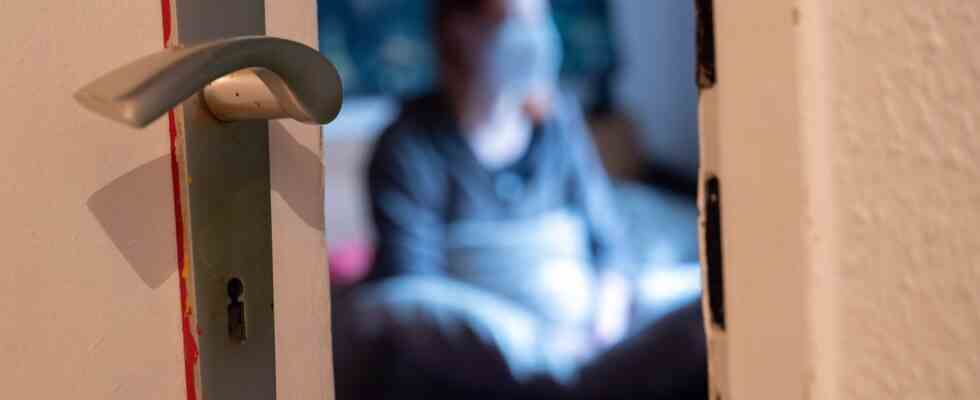Status: 09/27/2022 4:01 p.m
At least five days in isolation – even without symptoms, that is the current rule for corona infected people. Four federal states are now demanding an end to the obligation to isolate and are making a clear appeal to Minister of Health Lauterbach.
The pressure on the federal government to end the isolation obligation for corona infected people is increasing. The states of Baden-Württemberg, Bavaria, Hesse and Schleswig-Holstein asked Health Minister Karl Lauterbach (SPD) in a joint letter to ensure that the Robert Koch Institute (RKI) now changes the rules quickly. The letter is available from the dpa news agency.
Health Minister Manne Lucha spoke from Baden-Württemberg: “We should gradually get into the mode of treating a corona infection like another infectious disease, where the following applies: If you are sick, stay at home,” said the Greens -Politician. You have to rely on more personal responsibility and no longer prescribe people a five-day isolation obligation.
Minister of Health should take action by October 10th
The four countries expect Lauterbach to take action by October 10 at the latest. In your letter you refer to Austria, where the obligation to separate has been replaced by a so-called “traffic restriction” since August 1st. There, infected people must wear an FFP2 mask for ten days in most places, but they are not allowed to visit nursing homes and clinics. But you can go to your workplace. “The end of the obligation to isolate has not led to any relevant increase in reported cases in Austria,” write the four health ministers in their letter.
They argue that a large part of the population in Germany is immunized, either through vaccinations or through infections. The clinics are also able to deal with Corona.
Lauterbach rejects the advance
Lauterbach immediately rejected the advance. “We will not tackle the corona isolation obligation,” he said in Berlin. In view of the currently increasing number of cases, one does not want to “pour oil on the fire” and increase the risk of infections occurring in companies or at gatherings. Therefore, it does not make sense to waive the obligation to isolate.
Worry about possible problems with critical infrastructure
Bavaria’s Health Minister Klaus Holetschek (CSU) said he had asked the federal government to act months ago. “Now Lauterbach must finally become active.” The CSU politician, like his Hessian colleague Kai Klose (Greens), is concerned that there could otherwise be problems with the so-called critical infrastructure if, for example, nursing staff and police officers were absent.
Schleswig-Holstein’s Health Minister Kerstin von der Decken said that one had to learn that the corona virus spreads in a similar way to the flu virus. According to the CDU politician, the adjustment of the isolation rules is “a step on the way back to normality.”
At present, people suffering from corona in Germany have to isolate themselves at least five days after the positive test result, even without symptoms of the disease, because they could be contagious.
RKI registers 89,282 new infections – incidence at 334.9
The Robert Koch Institute (RKI) gave the nationwide seven-day incidence at 334.9. This is evident from numbers that reflect the status of the RKI dashboard at 5 a.m. The day before, the value of new corona infections per 100,000 inhabitants and week was 293.6 (previous week: 259.0; previous month: 260.3). However, this information only provides a very incomplete picture of the number of infections. Experts have been assuming for some time that there will be a large number of cases not recorded by the RKI – mainly because by far not all infected people have a PCR test done. Only positive PCR tests count in the statistics. In addition, late registrations or transmission problems can lead to a distortion of individual daily values.
The health authorities in Germany recently reported 89,282 new corona infections (previous week: 60,237) and 118 deaths (previous week: 146) to the RKI within one day. Here, too, comparisons of the data are only possible to a limited extent due to the test behavior, late registrations or transmission problems. In general, the number of registered new infections and deaths varies significantly from weekday to weekday, since many federal states do not transmit them to the RKI, especially at weekends, and report their cases later in the week. The RKI has counted 33,041,332 detected infections with Sars-CoV-2 since the beginning of the pandemic. The actual total number is likely to be significantly higher, as many infections go undetected.

